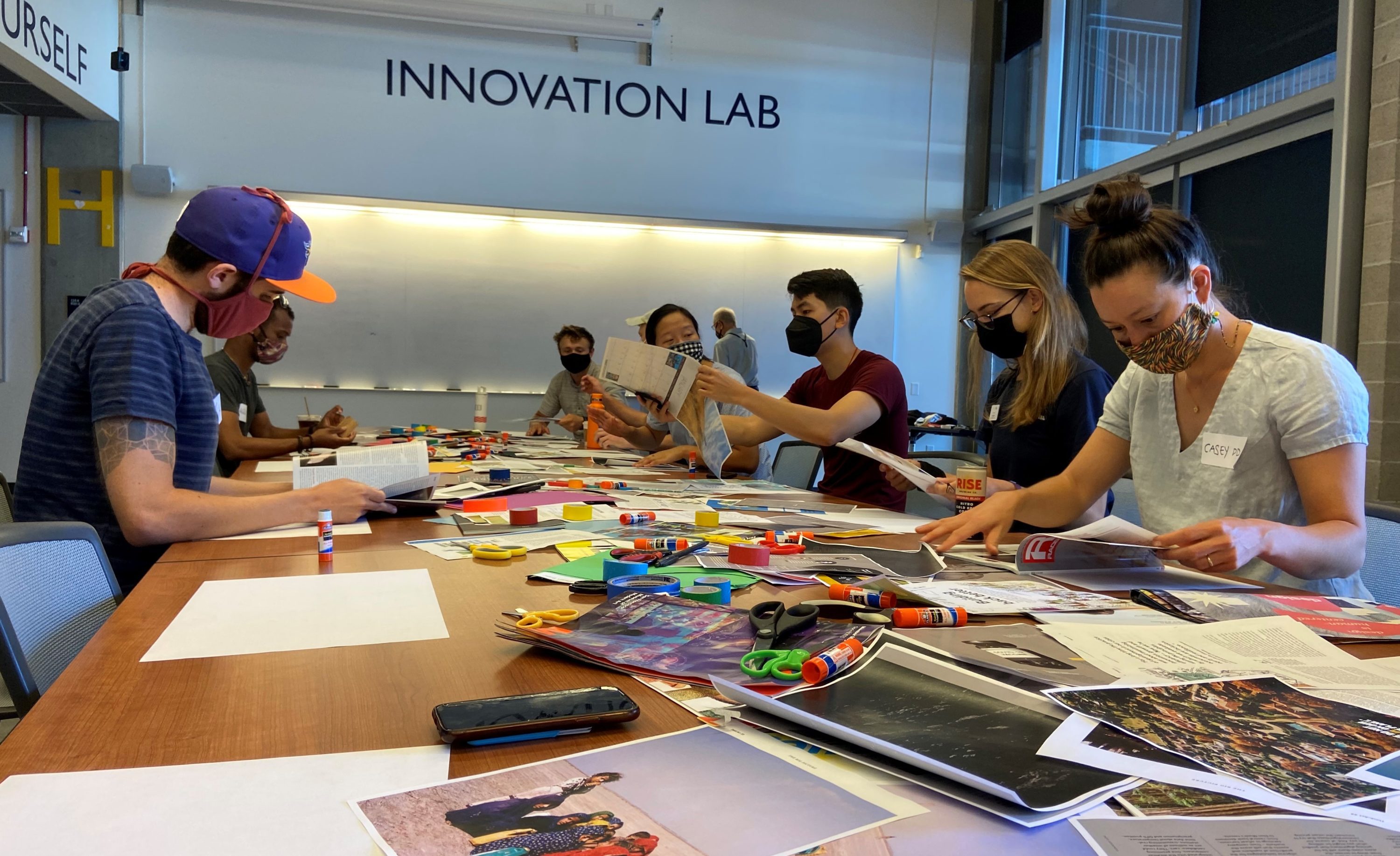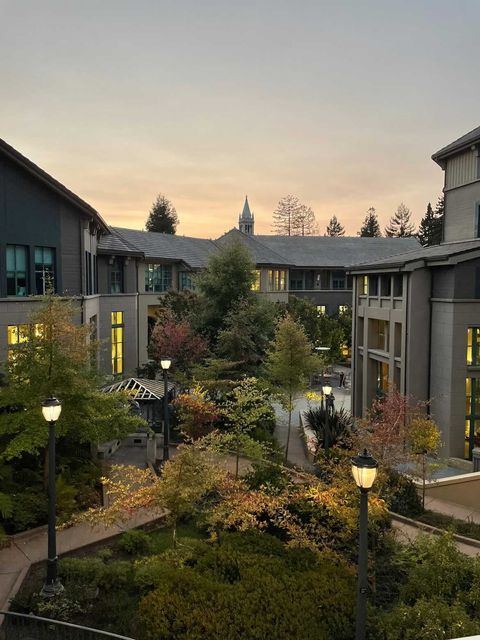Organization Spotlight: Center for Responsible Business
Get an insider’s perspective on the Center for Responsible Business at Haas from an interview with the Program Manager and Associate Director of CRB.
Helen: Hi Emily and Seren! Would you both like to introduce yourselves?
Emily: I am Program Manager at the Center for Responsible Business (CRB). I oversee the day-to-day administration of a number of our programs and events, including the Pearson speaker series, the Patagonia case competition, as well as our sustainable food initiative and marketing efforts this year.
Seren: I’m the associate director at CRB. I help with the strategic planning and implementation of our Center’s vision and Mission broadly. I also specifically oversee our Student Advisory Board members, which is made of undergrad, MBA, and grad students, as well as our Sustainable Innovation focus area.
Helen: Could you briefly describe what CRB does?
Emily: CRB has three topical focus areas. The sustainable food initiative is an area that students are very excited about from both the undergraduate and graduate level, and we have great strength and knowledge about sustainable food systems here at UC Berkeley, so that’s one area we are focusing heavily on. We also have sustainable innovation work, which Seren oversees.
Seren: That initiative looks atat new business models and ways businesses can be driving towards meeting some of the UN Sustainable Development Goals and other pressing sustainability and climate change goals. It also looks at how to get complete industry buy-in and innovation in that space, so it’s not just one clothing company tackling one issue but how the entire apparel industry rethinks how they do their operations.
Emily: And then the human rights and business initiative, which is run in partnership with the Human Rights Center at the law school, so that’s a really interesting interdisciplinary program looking at Human Rights within business. We’ve just hosted our annual Conference on Business, Technology, and Human Rights, looking at the future of work and AI, to human rights in the supply chain. These initiatives are not siloed pillars; they’re more of a Venn diagram with lots of areas of overlap on the way to work outside these top of the areas. This includes circular economy and environmental justice, but those are the main ones you’re going to see in our upcoming courses and events and such.
Helen: What are some of the current events that students can be a part of at CRB?
Emily: I’ll just start with a quick general overview. For students, there are three main ways to get involved, the first being the courses we offer. We have a number of different courses across different sustainability and social impact topic areas available at the undergraduate and graduate level. We also will host a number of virtual events this year, which is a great way to tap into thought leadership from within industry. A bucket that we’re increasingly working on that I would call out is our applied learning and experiential learning opportunities. We have consulting based courses at the undergraduate and graduate level looking at corporate sustainability and social responsibility issues, and then we also partner with the Berkeley Innovative Solutions group, which does sustainability and impact consulting at the graduate level.
Seren: I would add our edible education course that is offered for undergrads and graduates in the spring. It is one of our flagship classes, and it is one of the reasons why many undergrads end up then trying to get into the UGBA space. The course is one of the best ways to learn about what’s happening in the food and sustainability space. Another stand out opportunity for students is the Patagonia Case Competition, where students are able to compete on interdisciplinary teams on a pressing sustainability and responsibility issue that Patagonia is facing. We will have more to come soon on announcements regarding the Patagonia case competition this year.
Helen: How has CRB been navigating a virtual environment?
Emily: I think there’s a few main ways that we really tried to pivot and enhance our events in this new virtual world – the first being we are very lucky at the center that we were already very collaborative and work with a the number of different groups across Haas and UC Berkeley and external Partners where we have found really great value in sharing learning and bringing together stellar content. Which brings me to the second kind of innovation we’ve done which is really considering Zoom fatigue and what that looks like in ensuring that when we do host events targeted for students we are bringing in the best of the best and featuring really amazing talks and individuals to make that time worthwhile. I think a third piece to all of this is just trying to retain that interactive element and really making sure that students have a voice at our events.
Seren: The positives of this is that it’s a broadening our ability for anyone to attend our events so before while we were limited to quite literally physical room space, we’re now able to have as many students to attend our events as possible
Helen: What do you think is something undergraduates should know about CRB?
Seren: No matter what sector, what industry, or what job function you’re going to be going into after you graduate from UC Berkeley, sustainability and climate change is going to be inherent to any company you’re working at. Companies have now shifted from hiring people who work specifically in sustainability to expecting all their employees to be well versed in all aspects of it. We encourage students no matter where you are on your sustainability journey, be it your passion or a back of your mind concern, to at least tap into our network at some point so you’re getting these conversations to know what’s out there in the business world.
Emily: Definitely, it’s never too early to start thinking about the impact you want to create, and purpose is something that every business is considering and thinking about.
Helen: Is there anything else you would like to add?
Seren: I would also give a shout out to our executive director Robert Strand, whose passion expertise, and research is in sustainable business models out of the Nordic region, and so we do have a number of classes in that area as well. I would also like to add that our doors are virtually open for office hours on our events page within our Google Calendar we do once a week. I also encourage students and undergrads to reach out to us, but also to take a look at our Student page to learn more about how you can get involved.
Sign up for the CRB newsletter here.


